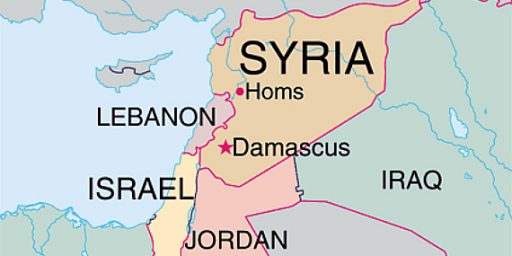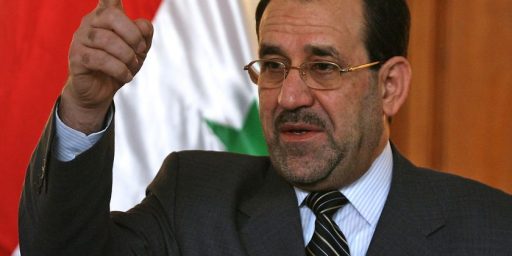Islam’s Sunni-Shiite Split and Iraq
CSM’s Dan Murphy writes about the origins of Sunni-Shiite split and its impact on the Iraq crisis.
The Shiites were the eventual losers in a violent struggle for mastery that lasted decades, a fact now reflected in their minority status within global Islam. But while the civil war now raging between Shiite and Sunni in Iraq is sometimes cast as an extension of this age-old religious struggle, today’s conflict is about something slightly different. While religious differences are real and remain important, the breakdown over Shiite and Sunni in Iraq is about group identity as much as it is about disagreements over proper worship.
In Iraq, many Sunnis and Shiites who are not particularly devout are participating in the bloodshed, fighting to advance group interests. “I think that Sunni and Shiite group identifiers have become more important in a lot of ways that are not essentially religious,” says Barbara Petzen, an expert at Harvard University’s Middle Eastern Studies Center.
Nevertheless, there are some key religious differences. Shiite veneration of the holy family, that is, the descendants of Muhammad, has contributed to a much more centralized and hierarchical clergy than in the Sunni world. All religious Shiites nominally observe the advice of an ayatollah on how to follow the law of Islam, or sharia, in the modern context. For many in Iraq, this role is fulfilled by Ayatollah Ali al-Sistani.
[…]
Though a majority in Iran and Iraq, Shiites make up just 15 percent of the world’s Muslims. Their history of defeat and frequent subjugation has also led to a cult of death and martyrdom within Shiism.
The major Shiite holidays celebrate the glorious defeats and martyrdoms of Imam Ali and Imam Hussein, Ali’s son, as typified by the preeminent Shiite holiday of Ashura, which marks the slaughter of Hussein and his followers outside the Iraqi city of Karbala by a Sunni caliph in 680. In Iraq and Iran, the holiday is marked by elaborate processions of men reenacting their own passion play, many of whom self-flagellate with chains to the beat of drums.
Such expressions of piety are looked at with disgust by hard-line Sunnis like the clergy in Saudi Arabia, who view the veneration of Hussein and other members of the prophet’s family as a violation of monotheism. This view has frequently led extremist groups like Al Qaeda to attack Shiites as heretics.
The publication of this evergreen piece so many years into the conflict is rather puzzling but, as repeated stories of even key decision-makers being clueless on this subject make clear, a refresher is always useful.
This is apparently part of a new series CSM is running entitled “Sunni vs. Shiite.” It is accompanied by an interesting quiz about the sectarian leanings of various Middle Eastern newsmakers, similar to ones that many policymakers have failed. Thankfully, I scored 8 of 8.





